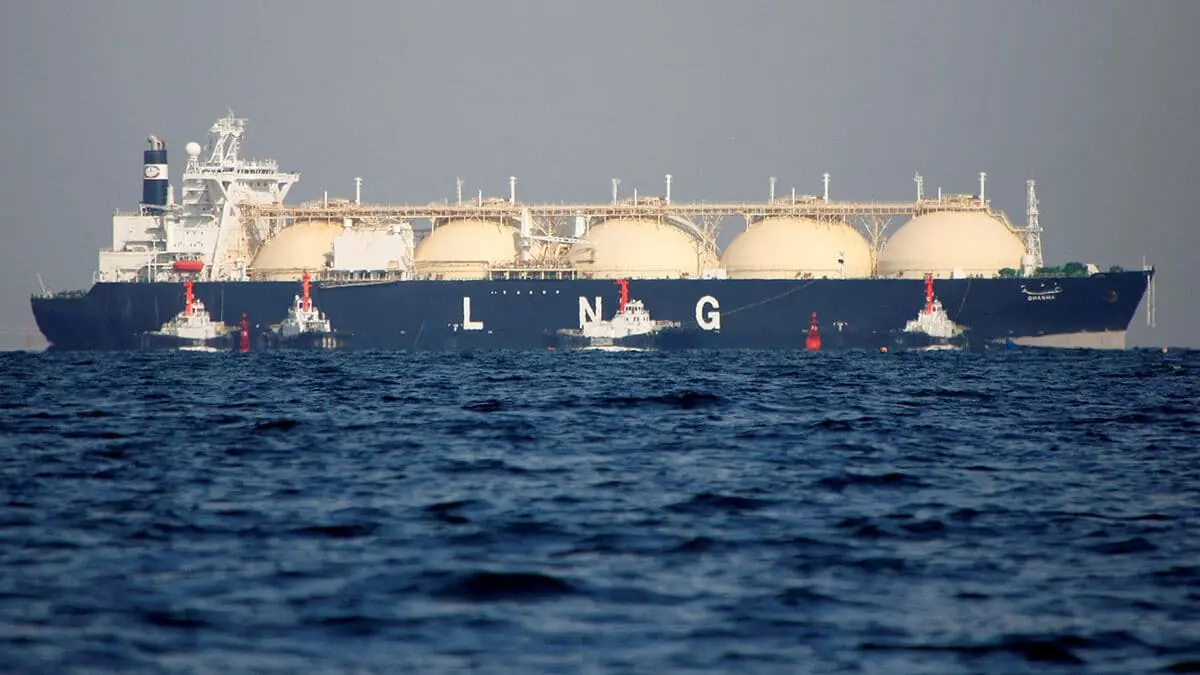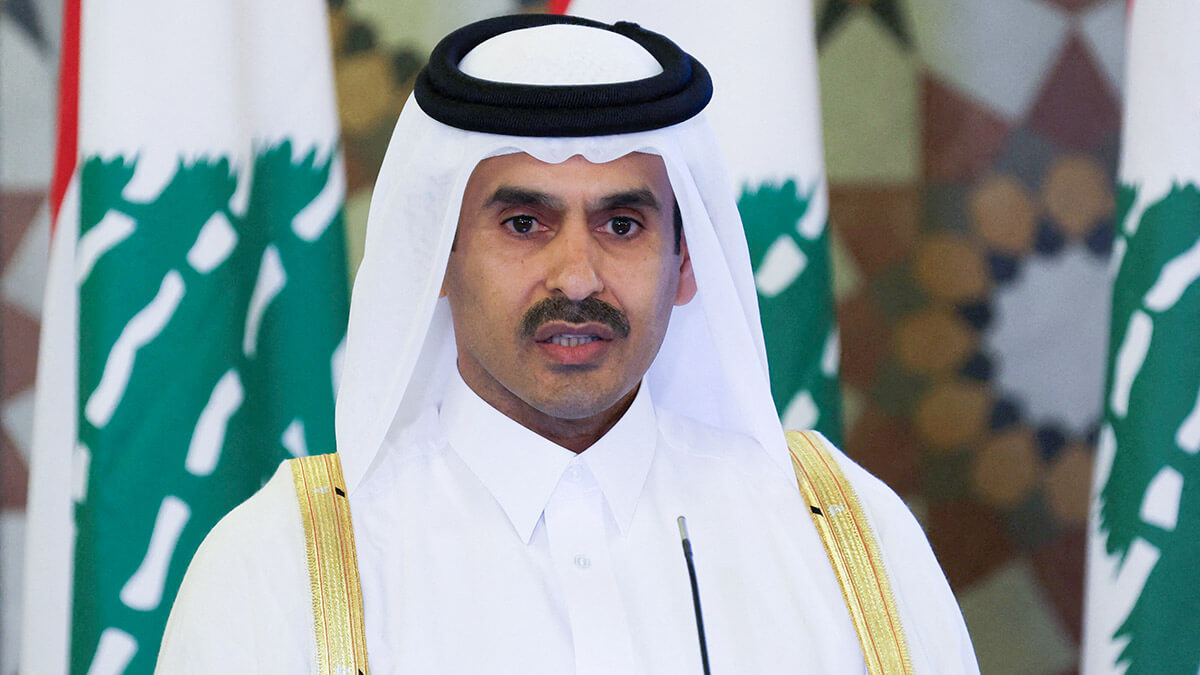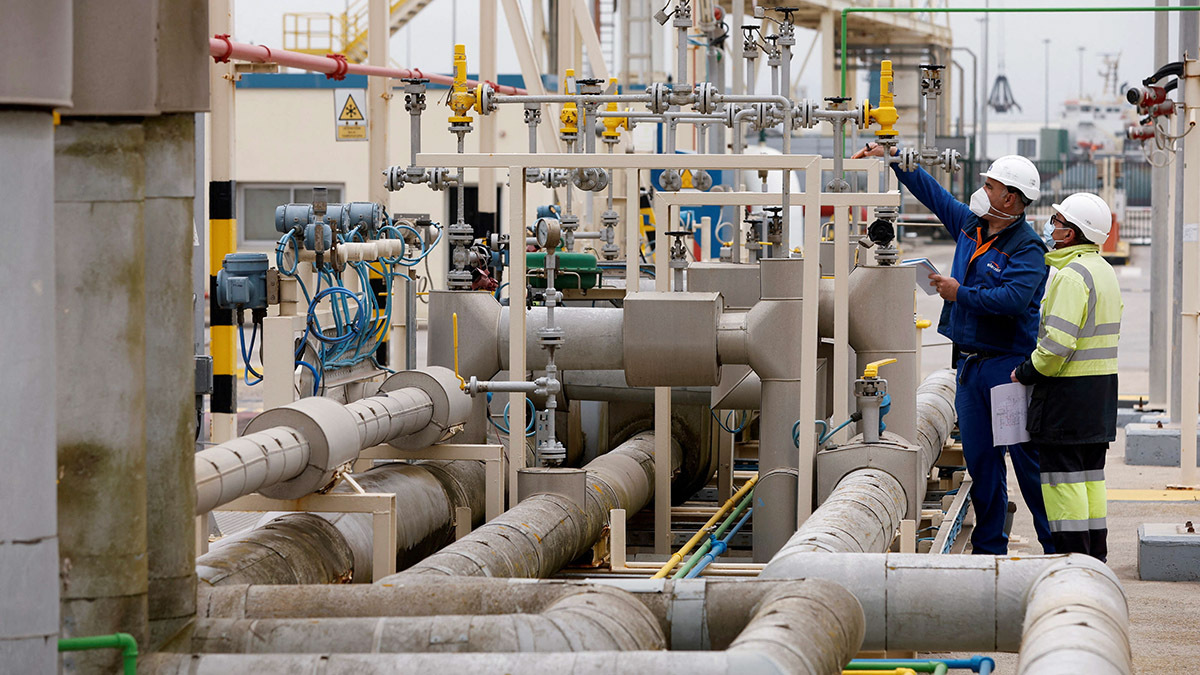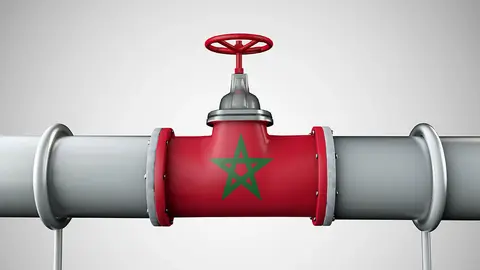Egypt and Qatar strengthen energy ties amid growing gas deficit

Faced with a growing energy crisis, Egypt is stepping up its efforts to secure natural gas supplies through an ambitious cooperation plan with Qatar. The North African country has announced negotiations to finalise a long-term liquefied natural gas (LNG) import agreement with QatarEnergy, one of the world's largest companies in the sector, with the aim of meeting growing domestic demand, mitigating power cuts and easing pressure on the state budget.
The announcement came after a meeting in Doha between Egyptian Oil Minister Karim Badawi and his Qatari counterpart, Saeed Al-Kaabi. The two discussed not only a supply agreement but also the possibility of deepening cooperation in exploration and development of fields, particularly in the eastern Mediterranean. The talks are taking place against a backdrop of a sharp drop in domestic gas production, which has forced Egypt to resume fossil fuel imports after years of self-sufficiency.
Energy deficit
Since 2022, Egypt has been facing a growing gas deficit. The country currently produces around 4.3 billion cubic feet per day, compared to demand that exceeds 6 billion, and which shoots up to 7 billion in the summer months. Egyptian power plants consume approximately 4.5 billion cubic feet of gas per day during peak season, in addition to 30,000 tonnes of diesel. This gap has forced the government to implement electricity rationing measures and resort to strategic imports.
In this context, Cairo has recently signed a contract with Hoegh Effie to lease a floating LNG import terminal for ten years, which will strengthen its regasification infrastructure. Similarly, in February this year, agreements were signed with Shell and TotalEnergies for the acquisition of 60 LNG shipments worth an estimated 3 billion dollars, with a one-year grace period for payment.
The total estimated cost of LNG imports in 2025 is around 8 billion dollars, with an average price of between 48 and 50 million dollars per shipment. The government plans to import between 155 and 160 shipments this year alone. In addition, Egypt already imports around 1.2 billion cubic feet of gas per day through the Jordanian gas pipeline, which includes shipments from Israel and cargoes received at the Aqaba terminal.

Qatar, a key partner in difficult times
In this scenario, Qatar is emerging as a strategic energy partner. Not only is it one of the world's largest LNG exporters, but it has also recently strengthened its ties with Egypt by promising direct investment of 7.5 billion dollars, announced after Egyptian President Abdel Fattah el-Sisi's official visit to Doha last month.
In addition to direct supply, both parties are exploring collaboration in the development of new fields. During the meeting in Doha, Minister Badawi presented investment opportunities in key sectors such as oil, gas and petrochemicals, highlighting concessions in which QatarEnergy already has a stake, such as the Nefertari, Cairo, Misri and North Marakia wells, all located in the Mediterranean and operated in partnership with ExxonMobil.
Discussions also focused on the situation of the North Dabaa offshore field, where QatarEnergy acquired a 23% stake in 2023 alongside EGAS and Chevron. These investments are part of a broader strategy by the Egyptian government to attract foreign capital through incentives such as improved gas purchase prices and a clearer repayment schedule for international partners.

Egypt's energy potential
Egypt, Africa's second largest natural gas producer in 2022 after Algeria, has traditionally been a key player in the continent's energy sector. Over the last decade, its production has grown significantly thanks to major deepwater discoveries, such as the Zohr superfield, discovered in 2015.
However, domestic production has declined sharply in recent years due to the depletion of some wells and the lack of sustained new investment. In response, the Egyptian government has redoubled its commitment to the eastern Mediterranean, an energy basin that has grown in importance since the gas discoveries made in 2009 and 2010. The region not only has high reserve potential, but also offers a key geostrategic position for LNG trade.

Despite the challenges, Egypt is not giving up on its aspiration to become a net gas exporter again. The government's goal is to increase production to 5 billion cubic feet per day by the end of 2025 through intensified drilling and international cooperation. The alliance with Qatar could play a key role not only in meeting immediate demand but also in relaunching Egypt's energy potential in the medium and long term.
In short, the growing partnership between Egypt and Qatar reflects a regional trend towards greater energy integration in a global context where security of supply has become a strategic priority. For Egypt, ensuring the flow of gas is not only a matter of economic development, but an urgent necessity to sustain its social and financial stability.









